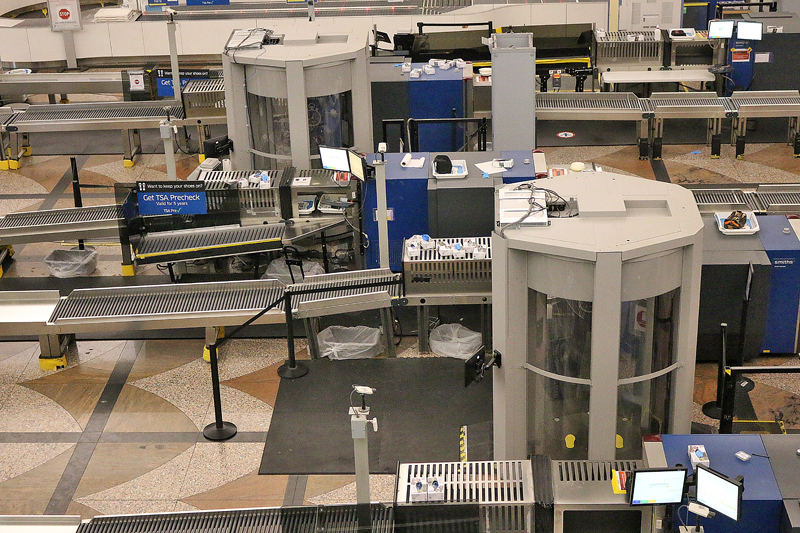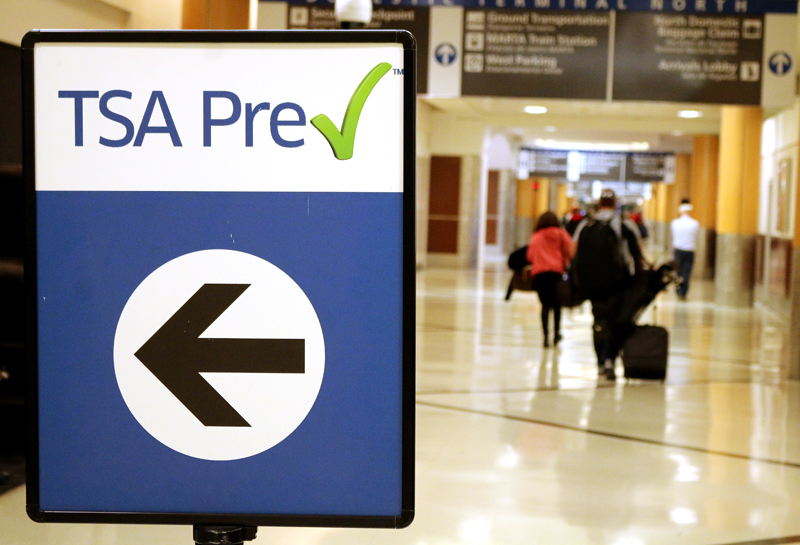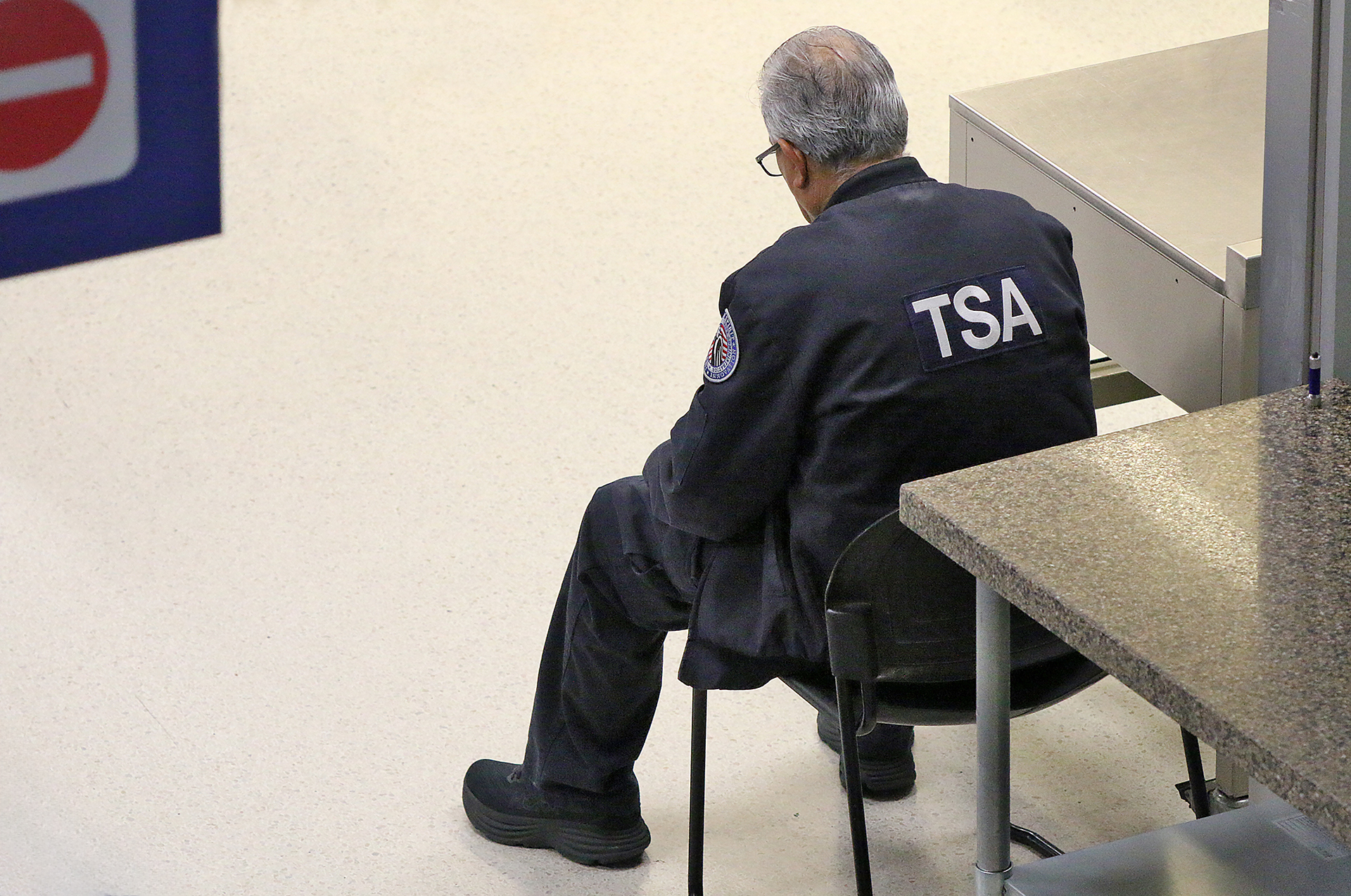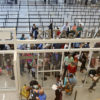A bill was introduced to abolish the Transportation Security Administration of the United States by two senators who propose to replace the agency and privatize security checkpoints at airports under the auspices of a new Office of Aviation Security Oversight.
Bill Introduced to Abolish the Transportation Security Administration

“The Transportation Security Administration (TSA) is not equipped to manage the fast-evolving threats posed to aviation transportation”, according to Mike Lee, who represents the state of Utah as one of its two senators of the United States. “Over the past two decades, it has ballooned into a bureaucratic leviathan of 60,000 employees. Its highly bureaucratic and non-competitive nature make it slow-moving, perpetually out of date, highly resistant to innovation and modernization, and simply ineffective. In addition to widespread allegations of employee misconduct and theft, a 2015 assessment found that TSA agents missed 95% of mock explosives and banned weapons during checkpoint screenings. The 95% failure rate was repeated in 2017 at Minneapolis-St. Paul Airport and repeat national tests that year were ‘in the ballpark’ of 80% failure rates.”
The Transportation Security Administration would be abolished three years after enactment of the legislation, which will allow time for privatization of the security checkpoints at airports throughout the United Sates — as well as the repeal or transfer of additional authorities.
“The TSA has become an inefficient, bureaucratic mess that infringes on Americans’ freedoms and wastes taxpayer money,” according to Tommy Tuberville, who is one of the two senators who represents the state of Alabama. “It’s a bloated agency that offers minimal security benefits while causing unnecessary delays and frustration for travelers. We need to focus on smarter, more effective methods to protect our country without sacrificing the liberties that make America great. The TSA should be eliminated and replaced with more targeted, streamlined, and accountable solutions.”
Within 90 days of enactment, the secretary of the Department of Homeland Security — in consultation with the secretary of the Department of Transportation — shall submit a reorganization plan to members of the House of Representatives that includes the:
- Creation of the Office of Aviation Security Oversight within the Federal Aviation Administration; and will be solely responsible for overseeing the privatization of aviation security screening.
- Rapid transfer of security activities and equipment to qualified private companies.
- Transfer of non-aviation security functions to the Department of Transportation — such as mass transportation, freight rail, and pipelines as three of many examples.
- Proportional reductions of operations and personnel of the Transportation Security Administration to facilitate transfer of duties.
Click here for the full text of the proposed legislation.
Final Boarding Call

I have to say that I have not written a negative article pertaining to the Transportation Security Administration in a long time. In fact, the topic of the very first official article I wrote for what was then known as simply The Gate was which liquids and gels were permitted to carry aboard an airplane on Friday, August 18, 2006. Almost 19 years later, I still believe that that ridiculous policy of limiting gels and liquids aboard airplanes should be eliminated.
I agree that the agency is bloated. The initials TSA has been jokingly referred to as meaning thousands standing around — and seeing a dozen agents seemingly doing nothing but standing around is not uncommon in my travel experiences over the years. The agency certainly is in dire need of improvement in many areas of security at checkpoints at airports — including but not limited to the policy of taking off shoes and the reduction of long lines that even occur in the special lines that are dedicated to passengers who are enrolled in the TSA Pre✓ Trusted Traveler Program…
…but what is actually needed is consistency at airports worldwide — and elimination of the Transportation Security Administration will not solve that issue. Inconsistency of rules and policies is one of the most frustrating parts of security of commercial aviation, as was recently experienced at Kiruna Airport in Sweden regarding the size of the plastic bag which held individual liquids and at Bauerfield International Airport in Vanuatu with concern to the size of containers that hold liquids.
What the world needs is security that combines the optimum balance of safety and effectiveness with expediency for travelers — not some hodgepodge of outdated policies and rules whose only purpose seems to be to aggravate, frustrate, and unnecessarily inconvenience passengers with what appears to be only an illusion of security.
All photographs ©2016, ©2020, and ©2025 by Brian Cohen.

